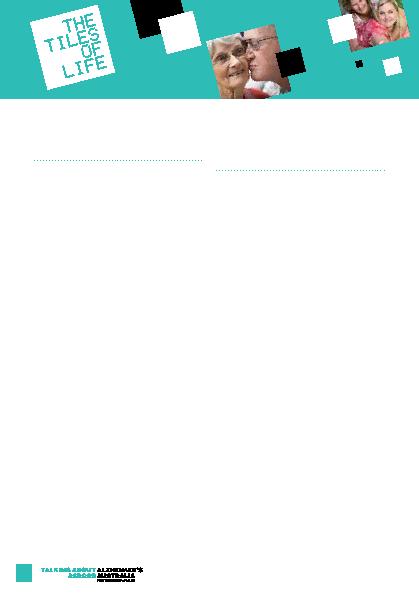
community, its ageing population and for
people with dementia.
sense of ultimate meaning and purpose. In fact
in may be disturbed or even lost all together.
Pastoral presence seeks to help a person get
in touch with ultimate meaning through the
power of comfort and connectedness.
actual case study scenarios that pastoral
presence facilitates the opportunity to have
in depth meaningful relationships with people
profoundly affected by dementia. But how
does one communicate and relate pastorally
with someone who has significant cognitive
impairment due to dementia when they are
not able to converse? The answer is that
relationship and spiritual expression does not
rely upon intact cognition. It is a matter of the
heart.
communication does not rely completely upon
cognition, it is formed out of interactions with
others- that is relationship.
for non-cognitive and creative means of
communication. This includes, multi sensory
approaches, using the five senses as a means
of connection to assist communication in
advanced dementia. Examples from the
creative arts, metaphor, religious symbols
and silence, will be referred to as a means
of connection with ultimate meaning in the
of benefit to those caring for people with
dementia who are passionate about making a
meaningful connection.
Caritas Care (part of St Vincent's Health &
Aged Care)
that clinicians and other health professionals
apply when they are considering a restrictive
practice for people living with dementia in
residential aged care. Inclusive of these
principles is that a restrictive practice must be
a medically authorised treatment, viewed as
a last resort, least restrictive and temporary
measure. Yet, anecdotal evidence and lived
experience would suggest there continues
to be examples of the inappropriate use of
restraint in aged care.
around the premise that applying the least
restrictive restraint is an accepted clinical
intervention after the evaluation and trial of
alternatives. To change the environment
of current thinking, restraint needs to be
considered through a different lens. One
alternative viewpoint is that the application of
a restraint indicates a management failure and
that once applied the restraint is no longer a
benefit but a burden for the person living with
dementia.
changes the fundamental philosophy of how
we manage restraint processes particularly